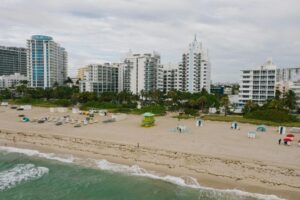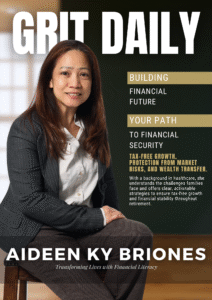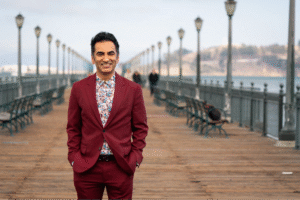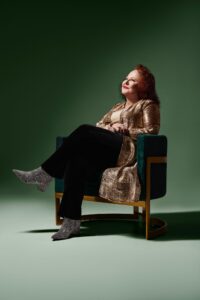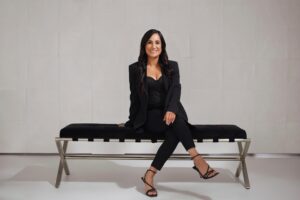Masimo was born in Joe’s (Massi) garage when he was a young engineer in his early twenties, and he has turned it into a global leader with a market cap of $6 billion. But while some say slow and steady wins the race, for over 35 years, Joe has never slowed down. It is to the point that employees would say it feels like going to work at a startup, even though it is a 35-year-old company. Joe has always thrived on fascination and accomplishment, and he is the reason the company has launched more innovations than any other company of its size.
Joe is not your typical CEO, and for the majority of employees, their job is more than just earning a paycheck. What gets them up each morning is going to work for a leader and company that is making the world a better place. The company’s reputation attracts the best of the best.
Joe’s parents came to the U.S. when he was just nine years old, and he didn’t know a word of English. His mom was a nurse, and his dad was an engineer who came to the U.S. to study. They lived in the projects of Alabama for a while, and then, at some point, he and his sister had to take care of themselves. Joe still managed to graduate from high school early and had his master’s in electrical engineering by the age of 22. He had a very strong work ethic at a very early age, and he wanted to make a difference.
Today, Joe has over 600 patents, and his innovations have helped eliminate blindness in newborns, identify congestive heart failure in babies, and monitor over 200 million people a year in the top hospitals around the world. He works very closely with his R&D departments to create future innovation and make the impossible possible. He communicates daily with his engineers, and every week, he meets with both his medical R&D team and his consumer R&D team.
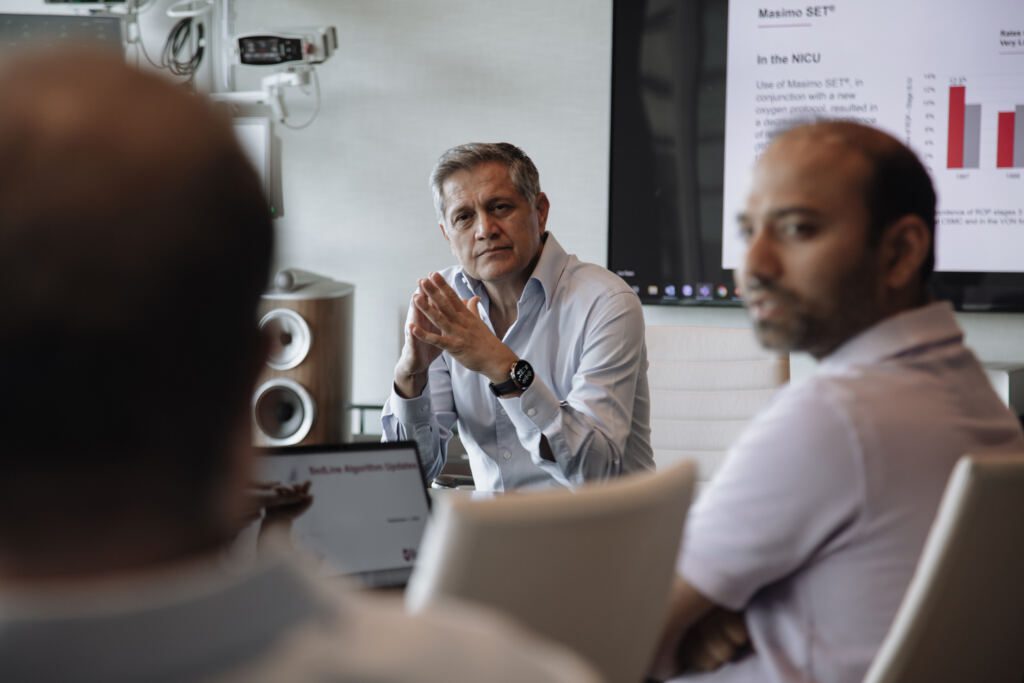
So what does a day (or so) in the life of Joe Kiani look like? Below is an example itinerary.
5 am – Joe wakes up and checks his email before his family is up, then he drops off his son at school and heads to the office.
8 am – Joe meets with his executive team.
9 am – He meets with his R&D team to talk about the latest projects and how they will create the technology needed in the next 20 years today.
10 am – Joe has an interview with a reporter wanting to know more information about the role AI has in healthcare.
Joe gets in his steps during the day. It is not unusual to see him in the hallways of the beautiful Masimo building (the building seen in the movie Ironman) on a call. He loves walking, playing tennis, and working at his ranch.
11 am – He has a board meeting with the Children’s Hospital of Orange County.
12 pm – Joe has a lunch meeting with the doctor running his non-profit, The Patient Safety Movement Foundation.
1 pm – He has a meeting with his legal team regarding updates in the Apple case.
Joe is the only CEO that was able to stand up to Apple (the world’s largest company) and win. The U.S. International Trade Commission ordered an import ban and cease and desist for Apple watches that were found to infringe Masimo’s patented pulse oximetry technology.
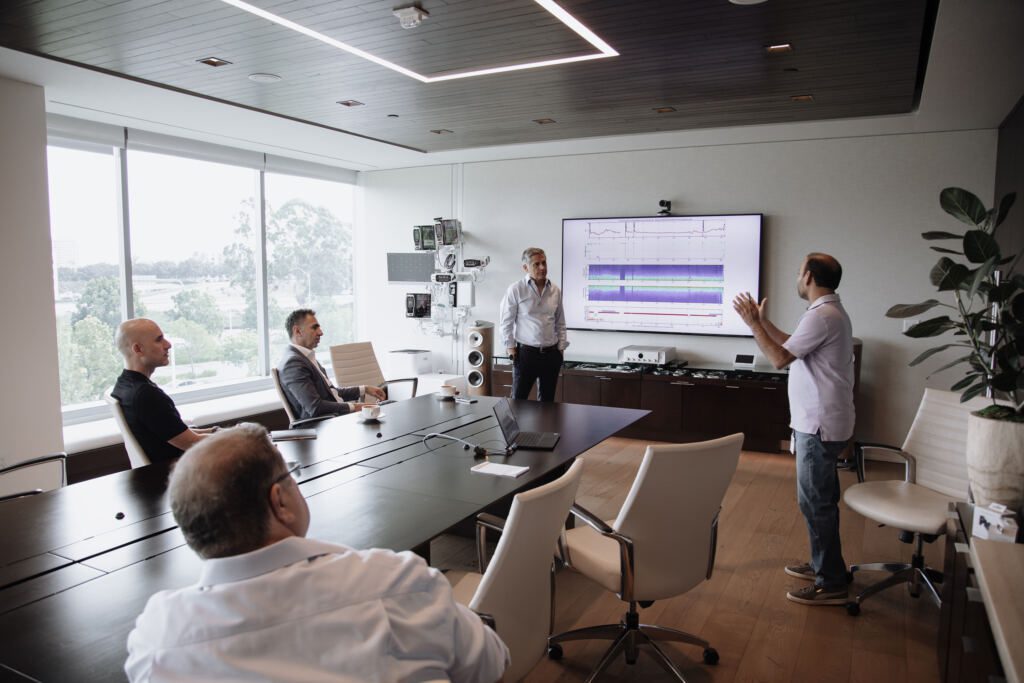
2 pm – Joe has a call scheduled with an investor checking in.
3 pm – Joe leaves to pick up his son from school.
4 pm – Joe has a conference call with his Marketing team on the launch of a new consumer technology.
5 pm – He has dinner with his family at home.
5:30 pm – Joe drives to catch a flight and has a conference call with his head of sales.
5:45 pm – He gets on a plane to Chile, where he will speak on AI in healthcare at the Ministerial Summit. During the flight, he catches up on email on the plane with the Switzerland office.
3 am – He arrives in Chile.
7 am – He prepares for his keynote speech.
8 am – He meets with the Word Health Organization team heading the conference.
10 am – Joe gives his keynote speech.
11 am – He meets with the Minister of Health of Chile.
12 pm – He meets with local clinicians and takes a tour of the hospital.
1 pm – He meets with the local Masimo representative.
2 pm – He catches a plane back to the office.
For Joe, his work is a calling, and it’s important for him to know that he and his team are making a difference. He also knows how important it is to have fun as you strive to make each year better than the year before. Joe’s guiding principles were adopted by Masimo and have held strong for over 35 years for him and his team members around the world:
- Remain faithful to your promises and responsibilities.
- Thrive on fascination and accomplishment and not on greed and power.
- Strive to make each year better than the year before, both personally and for the team.
- Make each day as fun as possible.
- Do what is best for patient care.
As a global citizen, Joe feels we all have a responsibility to do what we can to leave this earth better than we found it. He calls this concept micro-fixing and uses it in both his personal and professional life. He believes micro-fixes, no matter how small, can have a large impact on the world.
In 2019, Masimo purchased and renovated an apartment building as an investment and then master-leased it to Friendship Shelter to house individuals experiencing homelessness. Seventeen people now live in the Masimo-owned building and Friendship Shelter has on-site staff to help support the residents. This was the first time a company partnered with a non-profit in this way. A solution to the homelessness crisis can be overwhelming to think about, but every company can start with a building and become a part of the solution.
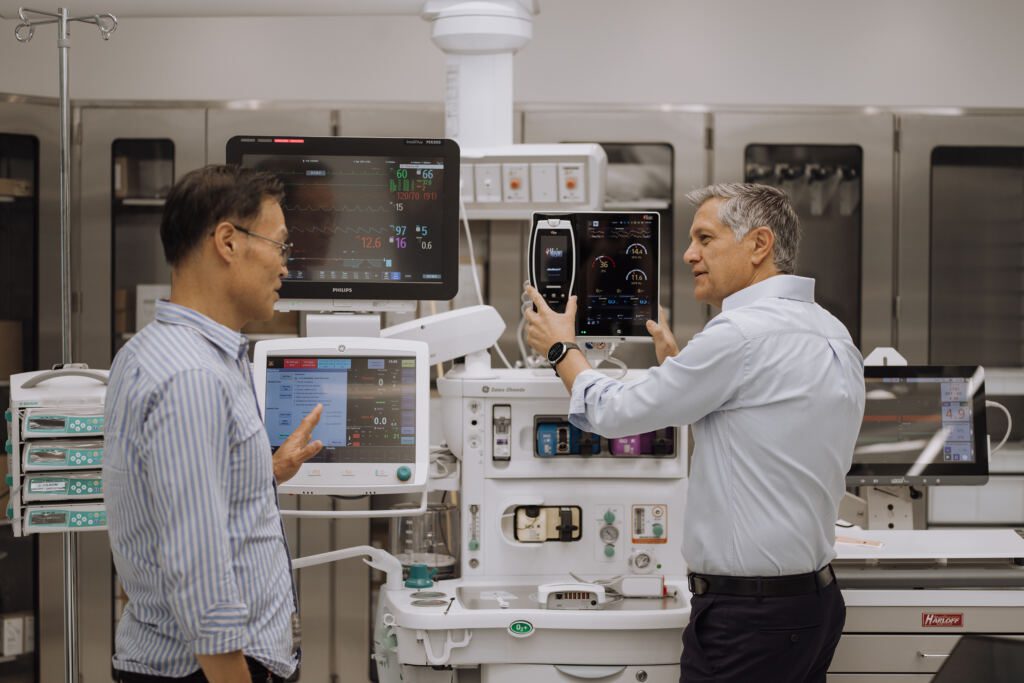
Even when the whole world stopped with the COVID-19 pandemic, Joe and his team went on overdrive to work with the FDA and clinicians to set up remote monitoring for overwhelmed hospitals. The team was working on an innovation for the opioid crisis. Still, when clinicians started contacting Joe regarding the need for safe remote monitoring, they shifted focus and used the solution to help hospitals quickly create remote monitoring. This was a game changer for clinicians and their patients and received global recognition.
The opioid overdose crisis has been declared a public health emergency, and it is the number one cause of death for Americans 18-45 – more than double Motor Vehicle accidents. Fifty percent of overdose deaths occur when the person is alone. Today, Masimo has launched two FDA-authorized devices to help the opioid crisis.
Bridge is the first FDA-cleared, drug-free, non-surgical device that uses neuromodulation to aid in the reduction of symptoms associated with opioid withdrawal. Bridge can be used for patients experiencing opioid withdrawal symptoms while undergoing treatment for opioid use disorder when initiating treatment, transitioning to naltrexone, or tapering off medication-assisted treatment. Patients experience an 85% reduction in symptoms of opioid withdrawal within 1 hour.
Opiod Halo, an opioid overdose prevention and alert system, has been granted a De Novo by the FDA. This makes it the first and only FDA-cleared monitoring solution for detecting opioid-induced respiratory depression, the leading cause of death from opioid overdose. Opioid Halo helps to manage and send escalating alarms to family members, friends, and caregivers, notifying them that help may be needed due to an opioid overdose, including triggering an automatic wellness call, which may lead to EMS being dispatched.
Today, Joe and his R&D teams are working to bring hospital innovation into the home while they redefine the wearables market. Their W1 Medical Watch has FDA 510(k) clearance for over-the-counter and prescription use. They are currently working on the Freedom Watch. “Innovation is the key to our survival,” said Kiani. “Every industry has to do its best, but our industry has to be the best.”


